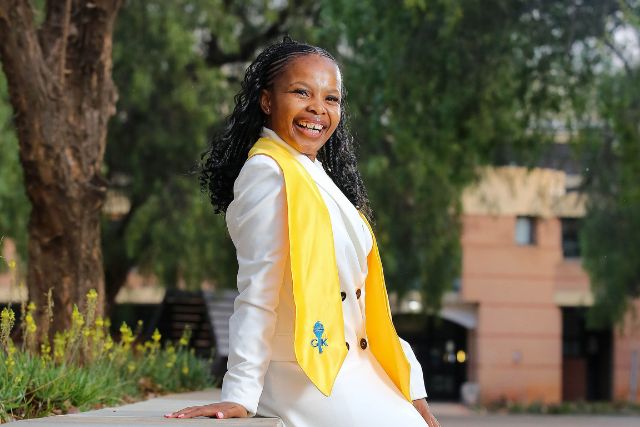Embarking on a Doctor of Philosophy (PhD) journey is a significant academic milestone. For many, it is the culmination of years of study and the beginning of a new chapter in scholarly life. When I was accepted into the PhD programme in 2021, I felt a profound sense of achievement. It was a mixture of excitement and anxiety. The idea of pursuing the highest academic qualification in the world was both humbling and daunting. I had completed two research-based Master’s degrees in the past, largely on my own, and that experience made me reflect deeply on how to get support in my PhD journey.
Creating a Community of Support
One of the first changes I made was addressing the isolation often felt in postgraduate studies. Unlike undergraduate programmes that offer built-in social and academic support systems, postgraduate studies—especially at the doctoral level—can be lonely. In response, I created a WhatsApp group named Master & PhD. The purpose of the group was simple yet powerful: to connect postgraduate students from across South Africa, in any discipline and at any institution, to support one another.
This peer support network quickly became a space where students could share resources, discuss their challenges, celebrate progress, and offer motivation. It reaffirmed an important lesson: academic success is not just about personal effort; it is also about shared experiences and collective encouragement.
Supervision and the Value of Constructive Feedback
Another key factor in navigating my PhD journey was the relationship I had with my supervisor. From the outset, we agreed to meet regularly and follow the timelines set in my research proposal. Each supervision session began with a conversation about my personal life, particularly my family and social well-being. This informal check-in became a crucial debriefing space and reminded me that my academic development was connected to my overall well-being.
After discussing personal matters, we shifted our focus to academic progress. One aspect that stood out was the opportunity to explain and defend my ideas. Rather than being directed on what to do, I was encouraged to justify my research decisions and approaches. This not only strengthened my critical thinking skills but also gave me a sense of ownership over my study—an essential part of doctoral scholarship.
Like many PhD students, I struggled at times with receiving feedback. Initially, reading comments from my supervisor would increase my anxiety. I often felt overwhelmed, especially when revisions were extensive. I developed a personal strategy to manage this: I began by addressing the minor corrections first. This gave me a sense of accomplishment and helped build momentum. Once I had gained confidence, I would then tackle the major revisions. Over time, I learned to view feedback not as criticism but as an investment in the quality of my work.
Importantly, I came to understand that reading, even without immediate writing, is progress. Engaging deeply with literature might not always result in paragraphs written, but it enriches understanding and strengthens the foundation of the research. Writing is not just about producing text—it is about producing meaningful, relevant, and well-grounded scholarship.
Time Management and Realistic Planning
Time management is critical in any research project. I found it helpful to break down my proposal into smaller tasks and allocate timelines to each activity. This allowed me to monitor my progress and remain focused. However, I also learned that even the best-laid plans can face unexpected challenges.
During the data collection phase of my study, I encountered difficulties in recruiting participants. This delayed my progress and disrupted my schedule. It served as a reminder that while timelines are necessary, they must also be flexible. Many students set unrealistic timelines simply to meet administrative expectations. When these plans do not align with the actual workload, frustration can quickly follow. A more balanced approach is to develop timelines that are both aspirational and achievable.
Leveraging Technology for Research
We live in an age where digital tools can significantly enhance the research process. While the use of artificial intelligence (AI) in academia continues to raise ethical questions, I believe that open and honest discussions between students and supervisors can guide the responsible use of these tools.
Throughout my study, I made use of several digital applications. Quillbot assisted with paraphrasing, Mendeley helped manage references, and ATLAS.ti supported the literature review and analysis of qualitative data. Each of these tools contributed to the efficiency and quality of my work. I also recommend storing research documents on cloud-based platforms such as Google Drive or Dropbox. This offers greater security than relying solely on physical storage devices, which can be easily lost or damaged.
Engaging with Institutional Resources
The Postgraduate Office played a significant role in supporting my journey. The office offers numerous workshops designed to enhance academic writing, writing up thesis chapters and writing retreats. I made it a point to attend as many of these sessions as possible. These events also created opportunities for networking and collaboration with other postgraduate students.
Equally important was the support provided by the university library. Developing a working relationship with a librarian proved incredibly useful when navigating databases, searching for relevant literature, and managing citations. These institutional resources often go underutilised, yet they are essential components of postgraduate success.
Prioritising Health and Well-being
Completing a PhD requires dedication, discipline, and at times, personal sacrifice. There were moments when I had to limit social engagements, reduce leisure time, and even compromise sleep. However, I strongly advocate for maintaining a healthy balance. Rest, nutrition, and self-care are not luxuries—they are necessities. Completing a PhD at the cost of your health defeats the very purpose of achievement.
In conclusion, the PhD journey is not only about obtaining a degree; it is about personal growth, intellectual transformation, and learning to navigate complexity with resilience. Whether you are just starting or are deep in your research, remember to celebrate your progress—no matter how small. Surround yourself with supportive people, stay open to learning, and take care of your well-being.
You do not have to walk this road alone. And you can succeed.



